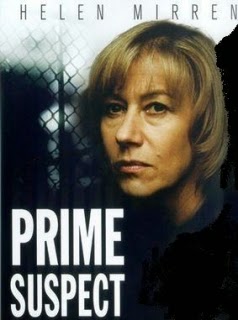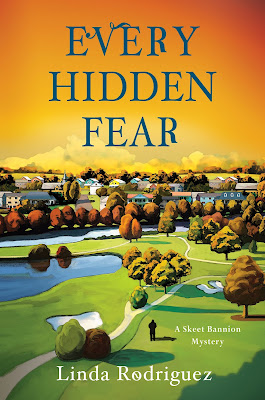By Laura Spinella

Lucy would say to Ethel, “I have an idea!” Ethel’s eyes would bug like moon pies, the
idea propelling the two into adventures that had her wearing the back end of a bull or wrapping candy with hysteria induced lightning speed. Of course, there’s the classic Harpo Marx mirror scene, and if Lucy were to get that coveted Richard Widmark grapefruit, it was up to Ethel to help her scale the wall. Well, we all know none of those brilliant harebrained ideas came from Lucille Ball’s henna rinsed head. They came from a staff of writers whose job it was to create twenty-two minutes of riveting, if not riotous, television.
Even in black and white, fifty plus years ago, it was still all about the idea. I like the concept of a team effort when it comes to television writing. It’s a natural path for a forum that thrives on timing, dialogue and the occasional pratfall. The medium lends itself to a group effort. Book writers, on the whole, aren’t of that nature. Of course, there is the exception to the rule, successful trends where big name writers, like Patterson, take on a protégé or sometimes an offspring. But as group, we work alone. It makes the idea portion a precious commodity. Visualize the stereotypical writer, go ahead. I bet we all conjure up the same scene: A haphazardly dressed, unshaven writer (man or woman, I’ll leave the hormonal issue up to you) staring willfully at a typewriter. I don’t care if you don’t even remember typewriters, It’s like separating Easter from chocolate. The two just go together. Inserted in the typewriter is the proverbial blank page, above the writer’s head an empty bubble. It waits with hemorrhoid like pain for an idea to insert itself. As I said, a stereotype.

Personally, the idea of approaching any keyboard with nary an idea scares the hell out of me. Assuming we’ve replaced the typewriter with a computer, I’d be on Facebook in .03 seconds. Ideas don’t come as a whole. They don’t even arrive in tasty chunks. For the most part, ideas are snippets and threads that, if I’m clever, weave into fabric. If the scraps of ideas are good enough, eventually the fabric reveals a pattern that tells a story.
Along with the blank page comes the proverbial author question: Where do you get your ideas? When asked this, I tend to squirm, babbling nonsense that amounts to a message in a bottle. In truth, the answer is both so vague and tedious I find it impossible to answer. I view it as an unfortunate fact, until I ponder people like Patrick Bourne. He’s a character in my WIP, not the main character, but the one whose presence assures me that snippets are where real ideas start. A few years ago, I was doing a newspaper piece on a beautiful vintage property. The homeowner was there, a svelte gentleman for whom the word dashing was invented. He spoke only about his house, showing me period photographs of the Georgian manor. He was fascinating, his mannerisms matching his bone structure, distinct and inviting. I spent no more than five minutes with him. He had to leave for work—he was an attorney. At least that’s what the housekeeper told me, a woman who left me to peruse the property at my leisure. I admired ornate woodwork, Italian art worth more than I made in a year, Chinese Chippendale chairs and Persian rugs. I traveled room to room, or continent to continent, unable to get my mind off the man. I know that sounds like instant infatuation, which is plausible, as he was worthy. But that wasn’t it. There was something about him that simply captured my imagination. It intensified in his bedroom, finding his closet clearly divided and completely filled with men’s clothing. There was one photograph in the room, the man I’d met and an equally fetching African American man. I probably looked at the picture longer than I should have; it was hardly the point of my business in his bedroom.

Not long after, I went back to the newspaper and wrote a lovely Sunday feature about the grand manor and its historic ties to the community. Today, I couldn’t tell you what town it was in. I couldn’t retrace my steps if you told me there was buried treasure in the basement. A few sentences back, I mentioned that the man had captured my imagination. For most people, that’s a disposable phrase. For a writer, it’s future reference. I won’t tell you that Patrick Bourne is the man I met that day. I didn’t learn enough about him to possibly draw that conclusion. Our conversation was not personal; I don’t recall his name. Admittedly, I had privileged information, information that had time to stew and simmer in the back of my brain. All of this led to the snippets of thread that wove into fabric, creating Patrick Bourne. Is Patrick gay? Yes. Is he an attorney? Well, he is indeed. Are his mannerisms identical—they’re similar. But more than anything, the blanks of his past, present and future were completely up to me, custom crafted to fit the man in my book. So while there is no team of writers, there are thousands of random yet cataloged snippets. With any luck, a few will turn into perfectly wonderful ideas.
BEAUTIFUL DISASTER is an RWA RITA Finalist for Best First Book, Wisconsin RWA Finalist for Best Mainstream Title and New Jersey RWA Winner, Best First Book, 2011. BEAUTIFUL DISASTER was voted a Favorite Book of 2011 at SheKnows.com. Visit Laura’s site at lauraspinella.net













